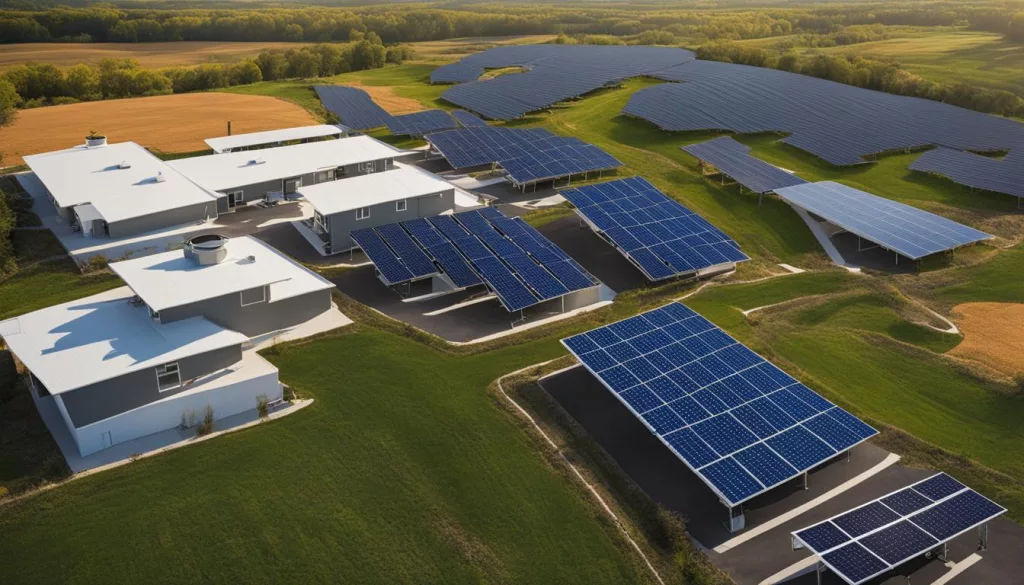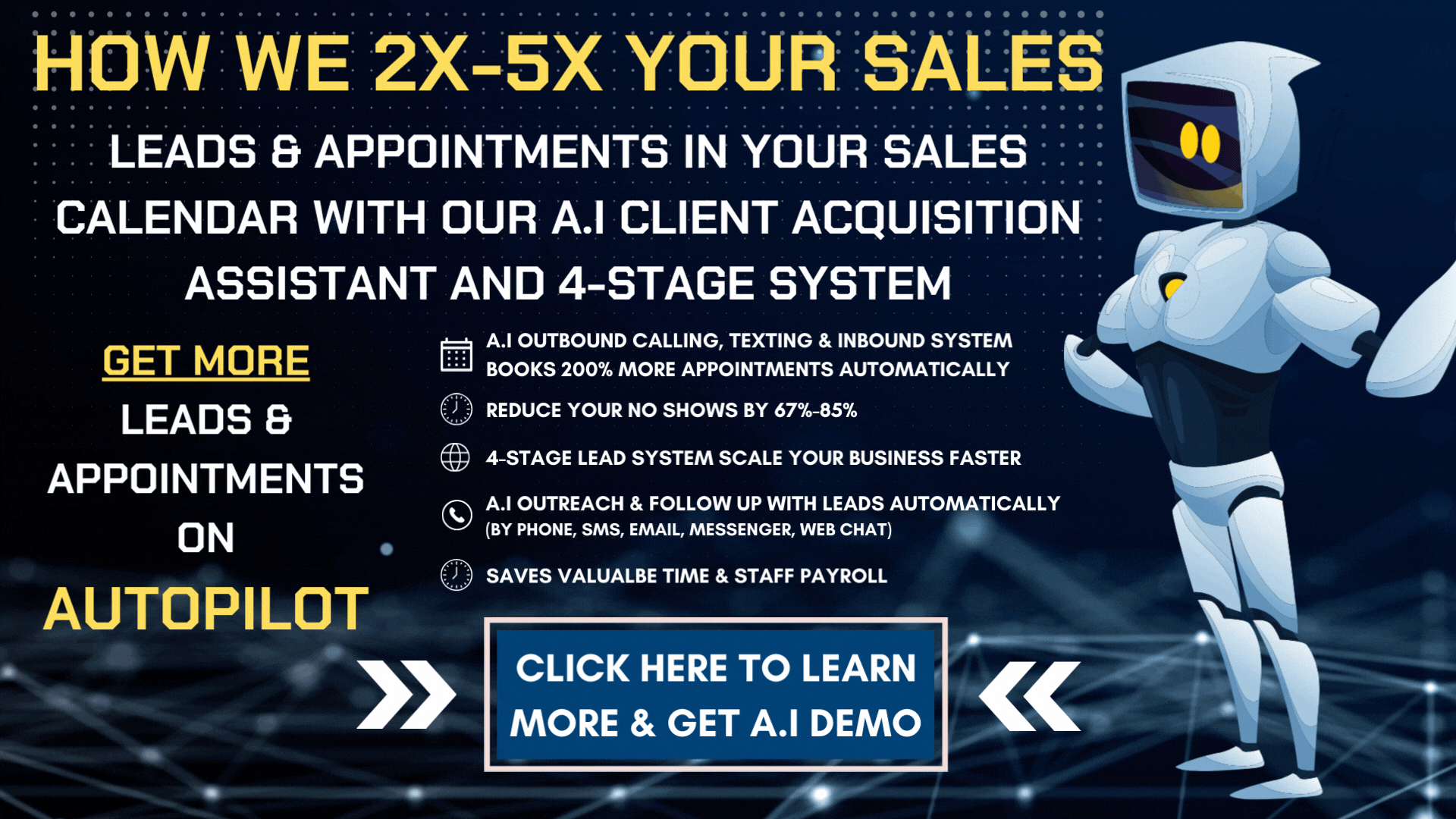The solar industry is experiencing significant growth, and as a business operating in this sector, it’s crucial to have a steady stream of potential customers to fuel your sales pipeline. One effective strategy to acquire these leads is by purchasing solar leads. In this article, we will explore the ins and outs of buying solar leads, including the various types available, the benefits they offer, and how to find reliable lead providers.
Key Takeaways:
- Purchasing solar leads can help enhance your sales pipeline and reach a broader audience interested in solar energy.
- Buying solar leads can save you time and enable you to focus on engaging with potential customers.
- There are different types of solar leads available, including real-time leads, aged leads, and telemarketing leads.
- When choosing a solar lead provider, look for reliability, compliance with regulations, and positive reviews.
- Consider the cost of solar leads and their potential return on investment before making a purchase.
The Benefits of Buying Solar Leads
Buying solar leads offers several benefits that can significantly enhance your solar business and lead generation efforts. Let’s take a closer look at the advantages of purchasing solar leads and how it can boost your sales and revenue.
1. Increased Efficiency and Productivity
By purchasing pre-qualified solar leads, you can save valuable time and focus more on engaging with potential customers. Instead of spending countless hours searching for prospects, buying leads allows you to access a ready-made database of individuals who have shown interest in solar solutions.
2. Market Expansion Opportunities
Buying solar leads enables you to tap into new markets and regions, providing opportunities for business growth. Whether you’re looking to expand your customer base locally or target specific areas, purchasing leads allows you to reach prospects that you may not have otherwise discovered.
3. Predictable Sales Cycle
Purchasing solar leads provides a level of predictability to your sales cycle. With a consistent influx of pre-qualified leads, you can better plan and forecast your sales activities. This predictability helps you allocate resources efficiently and maximize your conversion rates.
4. Better Return on Investment
Compared to wide-reaching marketing campaigns that often yield lower conversion rates, buying high-quality solar leads can offer a better return on investment. With carefully vetted leads that match your target audience, you can focus your efforts on individuals who are more likely to convert into paying customers.
By understanding the benefits of buying solar leads and implementing effective lead generation strategies, you can accelerate your business growth and maximize your sales opportunities in the solar industry.
Types of Solar Leads
Solar leads come in different types, each with its own advantages and considerations. By understanding these types, you can choose the most suitable lead generation strategy for your solar business. Here are some common types of solar leads:
1. Real-Time Leads
Real-time leads are generated in real-time, providing you with immediate access to potential customers who have expressed interest in solar energy. These leads are typically fresh and have a higher chance of conversion. However, real-time leads tend to be more expensive compared to aged leads.
2. Aged Leads
Aged leads are solar leads that have been generated in the past, but still hold potential for conversion. These leads are usually more affordable compared to real-time leads and can be a cost-effective option for lead generation. However, it’s important to consider the quality of aged leads and ensure they are still relevant and interested in solar solutions.
3. Solar Appointment Leads
Solar appointment leads are leads that have already been qualified and are ready for a sales appointment. These leads have shown a genuine interest in solar energy and are more likely to convert into customers. By focusing on solar appointment leads, you can save time and resources on initial lead qualification.
4. Telemarketing Leads
Telemarketing leads are generated through outbound calling campaigns where prospects are contacted directly. These leads can be effective for reaching a specific target audience and engaging in personalized conversations. However, it’s important to comply with regulations and avoid using aggressive or non-compliant telemarketing strategies.
5. Solar Lead Sheets (Aged Data)
Solar lead sheets, also known as aged data, contain a list of potential customers who have shown interest in solar energy in the past. These leads can be a valuable resource for reaching out to potential customers and nurturing them through the sales process. It’s important to ensure the data is up-to-date and relevant to maximize conversion opportunities.
It’s important to evaluate your sales goals, target audience, and budget when choosing the type of solar leads to pursue. A combination of different lead types may also be beneficial to diversify your lead generation strategy and maximize your reach in the solar market.
| Type of Solar Leads | Advantages | Considerations |
|---|---|---|
| Real-Time Leads | Fresh leads with high conversion potential | Higher cost compared to aged leads |
| Aged Leads | Cost-effective option for lead generation | Quality and relevance of aged leads |
| Solar Appointment Leads | Qualified leads ready for sales appointments | Availability and accuracy of appointment data |
| Telemarketing Leads | Direct engagement with a specific target audience | Compliance with regulations and ethical practices |
| Solar Lead Sheets (Aged Data) | Opportunity to nurture potential customers | Data accuracy and relevance |
To visualize the advantages and considerations of each type of solar lead, refer to the table below:
“Choosing the right type of solar leads is crucial for optimizing your lead generation efforts. Consider your budget, conversion goals, and availability of resources to determine which type aligns best with your business objectives.”
Finding Reliable Solar Lead Providers
Why Finding Reliable Solar Lead Providers Matters
Finding a reliable source for purchasing solar leads is crucial for the success of your solar business. When you buy solar leads, you want to ensure that you are obtaining high-quality leads that have been properly screened and comply with industry regulations. Investing in leads from trustworthy providers can significantly enhance your solar lead generation strategies and increase your chances of converting leads into customers.
What to Look for in Solar Lead Providers
When searching for solar lead providers, there are key factors to consider:
- Strong Screening Process: Choose lead providers that have a robust screening process in place to verify the quality of their leads. This includes ensuring that the leads are genuinely interested in solar solutions and have accurate contact information.
- Regulatory Compliance: Look for providers that adhere to regulations such as the Telephone Consumer Protection Act (TCPA). This ensures that the leads you purchase have been obtained through ethical and lawful means.
- Pricing Options: Evaluate the pricing options offered by different providers. While cost is important, it should not be the sole determining factor. Balance affordability with the quality of leads provided.
Research and Reviews
Take the time to research and read reviews of solar lead providers before making a decision. By doing comprehensive research, you can gain insights into the reputation and track record of each provider. Look for feedback from other solar industry professionals who have purchased leads from these providers. Their experiences can help you make an informed choice and find a reputable and trustworthy provider.
Key Considerations when Choosing Solar Lead Providers
| Factors | Importance |
|---|---|
| Strong Screening Process | High |
| Regulatory Compliance | High |
| Pricing Options | Medium |
| Reputation and Reviews | High |
Note: Importance is ranked as high, medium, or low.
Understanding the Cost of Solar Leads
The cost of solar leads can vary based on several factors such as their source, quality, and age. It’s important to carefully consider their cost and potential return on investment to make an informed decision. Real-time leads are typically more expensive compared to aged leads.
Prices can range from $1.50 per lead for aged leads to $15 to $79 per lead for real-time leads.
When determining the cost-effectiveness of purchasing solar leads, it’s crucial to assess the quality and likelihood of conversion. Higher-priced leads may offer better quality and a higher chance of conversion, while lower-priced leads may require more effort and time to nurture into sales.
For budget-conscious businesses, aged leads can provide a more affordable option without compromising on their potential for conversion. These leads may have been generated at an earlier date but can still hold valuable opportunities.
It’s essential to strike a balance between cost and lead quality when purchasing solar leads. Investing in high-quality leads that align with your target audience and sales goals can yield a better return on investment in the long run.
Cost Comparison of Solar Leads
| Lead Type | Price Range |
|---|---|
| Aged Leads | $1.50 per lead |
| Real-time Leads | $15 to $79 per lead |
While these price ranges provide a general idea, it’s important to note that actual costs may vary depending on the specific lead provider and market conditions. Conduct thorough research and consider the overall value and conversion potential when evaluating the cost of solar leads.
Generating High-Quality Solar Leads
While buying solar leads can be an effective strategy, there are also various methods to generate high-quality leads on your own. These strategies not only give you more control over the lead generation process but also enable you to connect with prospects who are genuinely interested in solar energy. Here are some proven solar lead generation strategies:
Defining Your Target Audience
Understanding your target audience is the foundation of successful lead generation. Take the time to research and identify the demographics, interests, and pain points of your ideal solar customers. By defining your target audience, you can tailor your messaging and marketing efforts to resonate with their specific needs and preferences.
Crafting Personalized Messaging
Once you’ve defined your target audience, craft personalized messaging that speaks directly to their motivations and concerns. Create compelling content that highlights the benefits of solar energy, addresses common misconceptions, and presents compelling reasons to switch to solar power. Personalization goes a long way in capturing the attention and trust of potential customers.
Canvassing Neighborhoods
Take advantage of local marketing by canvassing neighborhoods within your target market. Distribute flyers, door hangers, or direct mailers that promote your solar business. This strategy allows you to reach potential customers who might not have considered solar energy before.
Running Paid Ads to Interested Prospects
Invest in online advertising platforms like Google Ads or social media advertisements to target individuals who have shown interest in solar energy. By displaying your ads to these prospects, you can increase brand visibility and generate leads from people actively seeking information about solar power.
Getting Listed on Local Service Directories
Ensure your solar business is listed on local service directories such as Yelp, Google My Business, and Angie’s List. This helps establish your credibility and makes it easier for potential customers to find you when they search for solar energy solutions in their area.
Launching SMS Marketing Campaigns
SMS marketing campaigns can be an effective way to capture leads, especially if you have a database of interested prospects. Send targeted text messages that provide valuable information, special offers, or incentives to opt-in for further communication.
Incentivizing Customer Referrals
Word-of-mouth marketing is powerful in the solar industry. Encourage your existing customers to refer their friends, family, and colleagues to your business. Offer incentives such as referral bonuses, discounts, or exclusive perks to encourage referrals and reward loyal customers.
Implementing these solar lead generation strategies can help you build a robust pipeline of high-quality leads. However, it’s important to track and analyze the results of each strategy to optimize your efforts for maximum effectiveness.
Stay tuned for the next section of our article, where we will delve into the importance of educating potential customers about solar energy and debunking common myths.
Educating Potential Customers
When it comes to solar power, there are still many misconceptions that potential customers may have. From concerns about the cost of installation to doubts about its feasibility, it’s crucial to provide accurate information and debunk common solar myths. By educating potential customers about the long-term financial benefits of solar energy, you can address their concerns and build trust, thereby increasing the likelihood of making a sale.
One effective approach is to emphasize the potential incentives and tax credits available for solar installations. By highlighting these financial advantages, customers can see how investing in solar energy can lead to significant savings over time. Additionally, providing case studies and success stories can demonstrate real-world examples of the positive impact solar power can have on both the environment and their wallets.
Debunking common myths surrounding solar power is also crucial in educating potential customers. By addressing misconceptions such as the belief that solar energy is only suitable for specific regions or that it’s too expensive, you can provide clarity and dispel any doubts they may have. Presenting clear and concise information about the affordability and accessibility of solar power can help potential customers make informed decisions.
“Solar power is not just for sunny regions. With advancements in technology, solar panels can generate electricity even in areas with less sunlight. Additionally, the cost of solar installations has significantly decreased over the years, making it a viable and affordable option for homeowners and businesses alike.”
Furthermore, providing resources for solar education, such as informative articles, guides, and videos, can empower potential customers to learn more about solar energy at their own pace. This self-directed learning approach can instill confidence and enthusiasm in customers, making them more receptive to exploring solar installation options.
Benefits of Educating Potential Customers:
- Builds trust and credibility with potential customers.
- Dispels common misconceptions and myths about solar power.
- Highlights the long-term financial benefits of solar energy.
- Increases customer confidence and receptiveness to solar installations.
By taking the time to educate potential customers and debunk solar myths, you can not only increase their understanding of solar energy but also position yourself as a trusted and knowledgeable resource. This educational approach is essential in fostering a positive relationship with potential customers and ultimately driving solar sales.
| Common Solar Myths | Debunking the Myths |
|---|---|
| Solar energy is too expensive. | Advancements in technology and decreased installation costs have made solar energy more affordable. |
| Solar power is only suitable for sunny regions. | Solar panels can generate electricity even in areas with less sunlight, making solar power viable in various locations. |
| Solar installations are complex and require constant maintenance. | Solar installations are designed for ease of use and require minimal maintenance, making them convenient for homeowners. |
| Solar energy is not reliable. | With advancements in solar technology, solar energy is now more dependable and can meet the energy needs of homes and businesses. |
Building a Personalized Sales Pitch
When it comes to selling solar energy solutions, a one-size-fits-all approach won’t cut it. Each potential customer has unique needs, goals, challenges, and concerns. To truly captivate their attention and demonstrate the value of solar energy, you need to craft a personalized sales pitch that addresses their individual requirements.
Understanding your customer’s motivations is the first step towards creating a pitch that resonates with them. Ask questions and actively listen to their responses. Are they driven by the desire to reduce their carbon footprint? Do they want to save money on their utility bills? Are they interested in going off-grid? By gaining insight into their specific goals, you can tailor your pitch accordingly.
“By addressing their individual needs, you can demonstrate the value of solar energy and increase your chances of closing the sale.”
Once you have identified their motivations, incorporate them into your pitch. Highlight the benefits that align with their goals. For example, if they are concerned about the environment, emphasize how solar energy can help reduce carbon emissions and create a more sustainable future. If they are looking for cost savings, explain how solar can significantly lower their monthly utility bills.
Additionally, be mindful of any challenges or concerns they may have. Address these head-on and provide solutions that overcome their hesitations. If they are worried about the upfront costs of installation, explain financing options or government incentives that can make solar more affordable.
The key to a winning sales pitch is to make the customer feel heard and understood. Show them that you have taken the time to personalize your approach to their unique circumstances. By doing so, you build trust, credibility, and increase the likelihood of closing the sale.
Sample Personalized Pitch:
As a homeowner who values sustainability, I understand your desire to reduce your carbon footprint and contribute to environmental preservation. By harnessing the power of solar energy, you can significantly lower your reliance on traditional, fossil fuel-based electricity sources, resulting in a positive impact on the planet. Our solar solutions not only offer the opportunity to go green but also pave the way for long-term cost savings. Imagine the satisfaction of receiving reduced utility bills month after month, while simultaneously making a meaningful difference to the environment. Let’s explore how our tailored solar solutions can address your specific needs and help you achieve your goals.” – [Your Name, Solar Energy Consultant]
By building a personalized sales pitch that directly addresses customer needs, you can establish a strong connection and increase your chances of securing their commitment to solar energy.
Risks and Considerations
While buying solar leads can be a beneficial strategy in solar lead generation, there are risks and important considerations that need to be taken into account. It is crucial to be aware of these factors to make informed decisions about your lead purchasing process.
Cheap Leads and Quality Issues
One of the main risks associated with buying solar leads is the potential quality issues that may arise. Cheap leads, although budget-friendly, may not provide the desired results. These leads could be of lower quality and may have been generated using aggressive or non-compliant tactics.
To mitigate this risk, it is essential to choose reputable lead providers who prioritize lead quality. Look for providers who employ strict screening processes and adhere to industry regulations. Investing in high-quality leads will increase your chances of connecting with interested and qualified prospects.
Avoiding Unethical Lead Generation Practices
When selecting lead providers, it’s crucial to avoid associating with companies that use telemarketing or cold calling as their primary lead generation methods. These practices can be invasive and often result in negative experiences for potential customers. Opting for providers that utilize more ethical and customer-centric lead generation strategies will help you maintain a positive brand image and foster trust with potential customers.
Compliance with Relevant Regulations
Compliance with regulations and industry standards is vital in solar lead generation. One regulation to consider is the Telephone Consumer Protection Act (TCPA), which protects consumers from unsolicited calls and messages. Ensure that your lead generation methods and providers adhere to TCPA guidelines and are compliant with all relevant regulations. By doing so, you can mitigate legal risks and maintain a positive reputation in the industry.
By recognizing these risks and considerations, you can make informed decisions when purchasing solar leads and ensure that your lead generation strategies align with ethical standards and industry regulations.
Risks and Considerations in Buying Solar Leads
| Risks | Considerations |
|---|---|
| Cheap leads may be of lower quality | Choose reputable lead providers |
| Aggressive or non-compliant lead generation tactics | Avoid companies that use telemarketing or cold calling |
| Potential legal risks | Ensure compliance with regulations, such as the TCPA |
Setting Up a Solar CRM
Investing in a solar customer relationship management (CRM) system can significantly streamline your lead management and sales processes. A solar CRM is designed specifically for the solar industry and offers features tailored to the unique needs of solar businesses. By utilizing a solar CRM, you can efficiently track and manage your leads, follow up with potential customers, and measure the effectiveness of your sales activities.
When choosing a solar CRM software, consider the specific functionalities that are essential for managing your solar leads. Look for features such as lead capture and organization, automated lead nurturing, sales pipeline management, and robust reporting and analytics. Additionally, ensure that the CRM integrates seamlessly with other tools and software you use in your solar business ecosystem.
By implementing a solar CRM system, you can effectively manage the entire lead processing lifecycle. From capturing and qualifying leads to nurturing and converting them into customers, a CRM simplifies and centralizes the process, allowing you to manage your leads more efficiently.
With a well-implemented solar CRM, you can capture valuable data about your leads, such as their contact information, solar requirements, preferences, and communication history. This data helps you personalize your interactions, tailor your sales pitches, and improve your overall customer experience. By leveraging the power of a solar CRM, you can increase your lead conversion rates and drive revenue growth for your solar business.
Benefits of Using a Solar CRM
Utilizing a solar CRM software offers numerous benefits for managing your solar leads effectively:
- Streamlined Lead Management: A solar CRM centralizes all your lead information, making it easier to organize, track, and prioritize your leads.
- Automated Lead Nurturing: With a solar CRM, you can automate lead nurturing processes, ensuring consistent follow-ups and personalized communications.
- Improved Sales Productivity: The efficiency of a solar CRM enables your sales team to spend less time on administrative tasks and more time engaging with potential customers.
- Enhanced Reporting and Analytics: A solar CRM provides valuable insights into your lead generation and sales performance, allowing you to make data-driven decisions and optimize your strategies.
- Better Customer Experience: By having a centralized platform to manage customer interactions, a solar CRM helps you deliver a more personalized and seamless experience to your leads and customers.
“A solar CRM is an essential tool for any solar business looking to optimize lead management, increase sales efficiency, and deliver an exceptional customer experience.”
Conclusion
Buying solar leads can be a game-changer for your solar business, offering a valuable shortcut to reaching potential customers and boosting your sales pipeline. By understanding the different types of solar leads, finding reliable lead providers, and implementing effective lead generation strategies, you can significantly increase your chances of closing deals and growing your business in the thriving solar industry.
One key aspect to keep in mind is the importance of quality leads. While quantity may seem enticing, prioritizing the quality of leads can yield better results in the long run. Invest in leads that are pre-qualified and have a higher likelihood of conversion, saving you valuable time and resources.
To maximize your success, personalize your sales pitches to address the unique needs and motivations of each potential customer. Tailor your messaging to highlight how solar energy aligns with their specific goals, whether it’s reducing their carbon footprint, saving money on utility bills, or achieving energy independence.
Lastly, continuous education is vital in the solar industry. Offering accurate information, debunking common myths, and highlighting incentives can help build trust with potential customers and demonstrate the long-term financial and environmental benefits of solar energy. By consistently refining your lead generation strategies and staying informed about emerging trends, you can position yourself as a trusted expert in the field and drive sustainable business growth.
FAQ
How can I buy solar leads?
To buy solar leads, you can approach reliable lead providers who offer pre-qualified leads. These providers have a screening process in place to ensure the leads are of high quality. Research and read reviews to find a reputable provider that aligns with your sales goals and target audience.
What are the benefits of buying solar leads?
By purchasing solar leads, you can save time and focus more on engaging with potential customers. Buying leads also allows you to tap into new markets and regions, providing opportunities for business growth. Additionally, purchasing leads can add predictability to your sales cycle and offer a better return on investment compared to wide-reaching marketing campaigns.
What are the different types of solar leads?
Solar leads can be categorized into different types such as real-time leads, aged leads, solar appointment leads, telemarketing leads, and solar lead sheets (aged data). Each type has its advantages and considerations, and the right choice depends on your sales goals and target audience.
How do I find reliable solar lead providers?
Finding reliable solar lead providers is crucial to ensure the quality of leads. Look for providers that have a strong screening process and comply with regulations such as the Telephone Consumer Protection Act (TCPA). Research, read reviews, and compare pricing options to choose a reputable and trustworthy provider.
How much do solar leads cost?
The cost of solar leads can vary based on factors such as the source, quality, and age of the leads. Real-time leads are usually more expensive compared to aged leads. Prices can range from $1.50 per lead for aged leads to $15 to $79 per lead for real-time leads. It’s essential to carefully consider the cost and potential return on investment before making a purchase.
How can I generate high-quality solar leads?
To generate high-quality solar leads, you can implement strategies such as defining your target audience, crafting personalized messaging, canvassing neighborhoods, running paid ads, getting listed on local service directories, launching SMS marketing campaigns, and incentivizing customer referrals.
How can I educate potential customers about solar power?
When educating potential customers about solar power, it’s essential to highlight the long-term financial benefits, debunk common myths, and emphasize potential incentives or tax credits. Providing accurate information and addressing their concerns can help build trust and increase the likelihood of making a sale.
How can I build a personalized sales pitch for solar leads?
To build a personalized sales pitch, it’s important to understand your customer’s goals, challenges, and concerns. Focus on how solar energy can meet their specific requirements, whether it’s reducing their carbon footprint, saving money on utility bills, or going off-grid. By addressing their individual needs, you can demonstrate the value of solar energy and increase your chances of closing the sale.
What are the risks and considerations in buying solar leads?
When buying solar leads, it’s important to choose reputable lead providers and avoid companies that use aggressive or non-compliant tactics to generate leads. Additionally, be aware of potential legal risks and ensure compliance with regulations such as the TCPA.
How can I set up a solar CRM?
Setting up a solar customer relationship management (CRM) system can help streamline your lead management and sales processes. A solar CRM allows you to track leads, follow up with potential customers, and measure sales activities. Look for a CRM tailored to the solar industry that offers the necessary features within your budget.
What is the importance of buying solar leads?
Buying solar leads can significantly enhance your sales pipeline and help you reach potential customers more effectively. By understanding the different types of leads, finding reliable providers, and implementing effective lead generation strategies, you can increase your chances of closing deals and growing your business in the solar industry.









